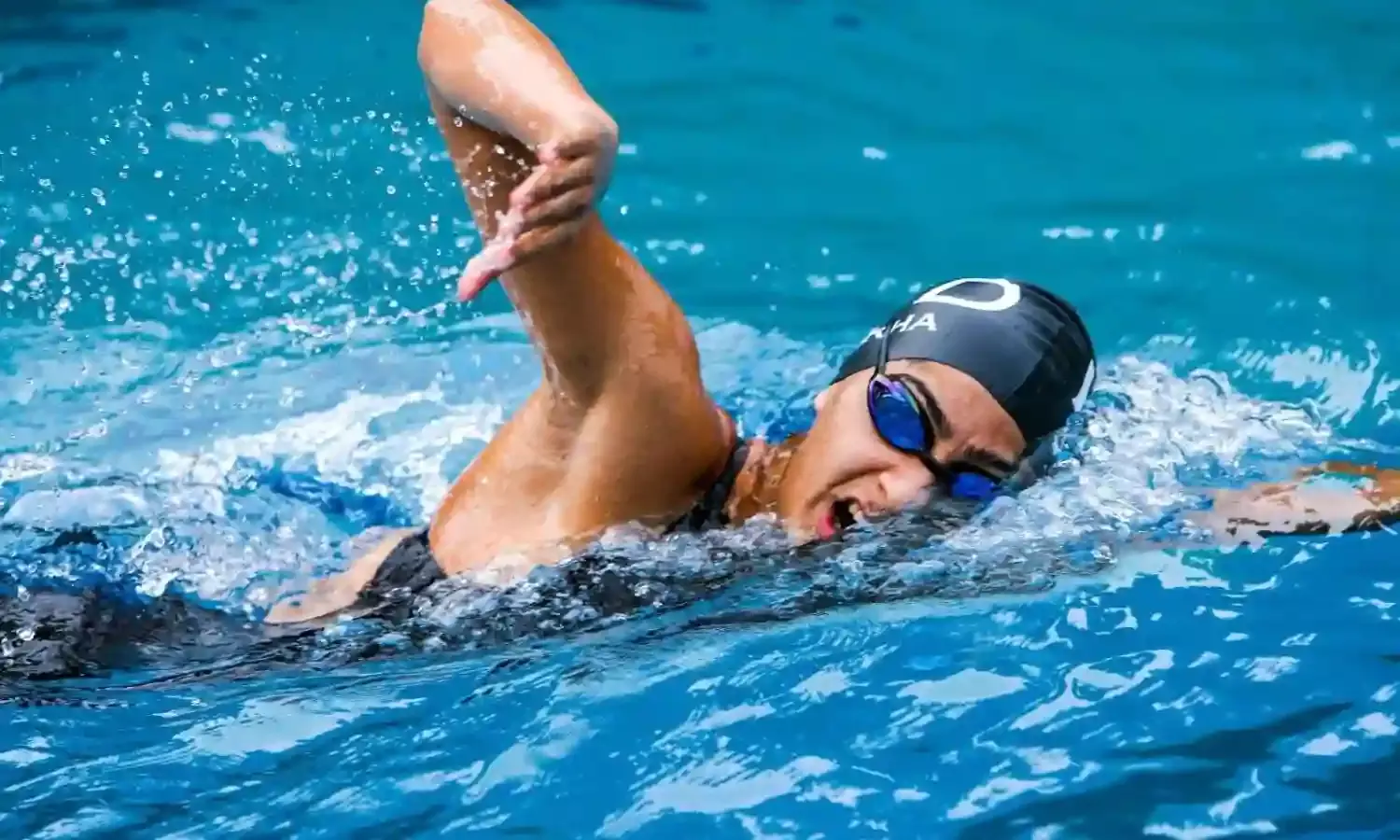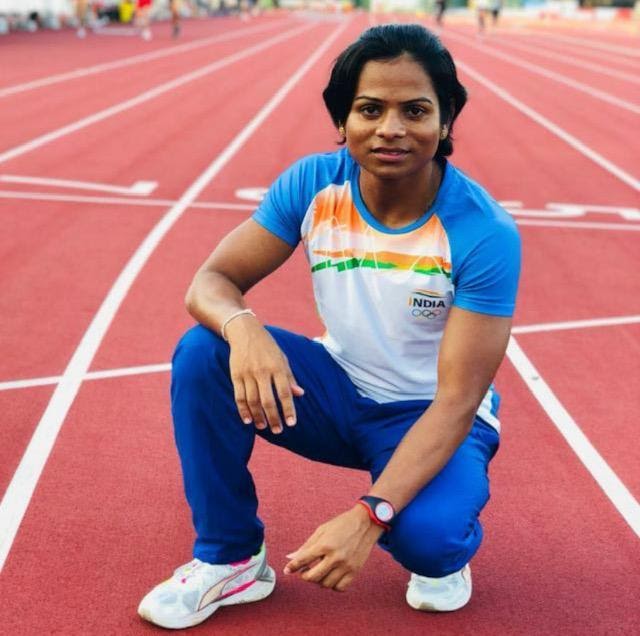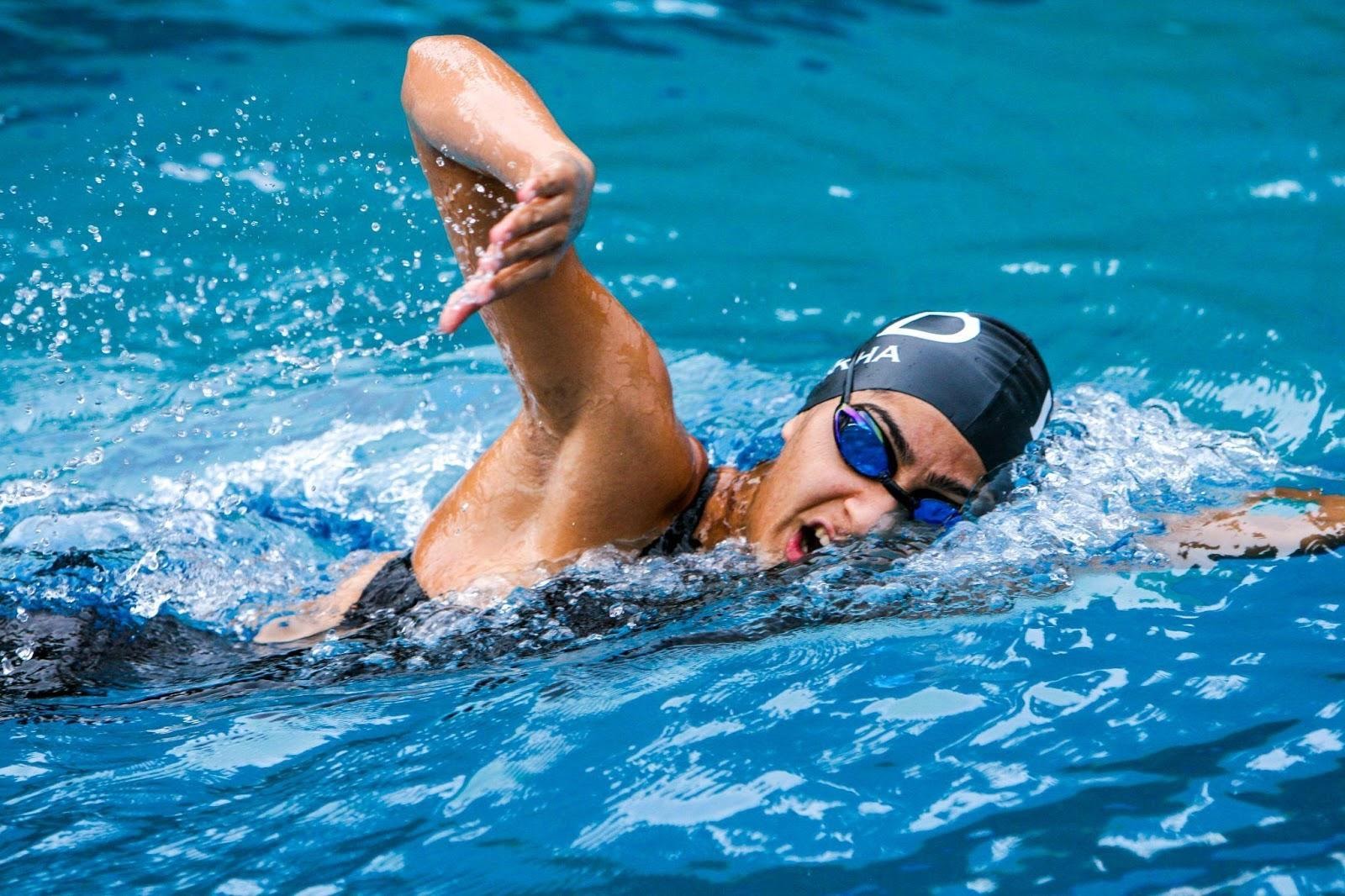Indian Athletes Feel Sexualised at Every Point from Training to the Olympics
‘It is really disturbing and it needs to change’

When Dutee Chand first started training as a runner, people in her village criticised her for wearing knee length shorts and “behaving like a boy”.
“I woke up at 4am everyday and would come back home before sunrise so nobody would notice me running,” says Chand. “I told my mother I don’t want to run anymore because of the language people used against me, and my mother told me to run in the dark so nobody can see me.”
The reigning national champion is the first Indian to win a gold medal in a 100m race at the international level.
Everybody knows now what happens when a woman plays sports, Chand tells The Citizen. “The people who say women should not wear short clothes or be in sports, bring them to me, I will show them.”

Dutee Chand is a professional sprinter and current national champion in the women’s 100 metres event
German gymnasts made news last month for wearing unitards instead of the traditional leotards at the ongoing Tokyo Olympics. “We wanted to show that every woman, everybody, should decide what to wear,” Germany’s Elisabeth Seitz told the Washington Post.
“The symbol applies to all gymnasts who may feel uncomfortable or even sexualised in normal suits,” Seitz tweeted. “Because in our opinion, every gymnast should be able to decide in which type of suit she feels most comfortable - and then do gymnastics with it.”
“You know they’re there to look at your bodies and it’s really unfortunate,” says Shikha Tandon.
An Olympic swimmer who represented India at the Asian Games at age 13, the World Championships at 16 and the Olympics at 19, Tandon has won 146 national and 36 international medals, including five gold.
When she would train as a young player at swimming pools, she recalls, men would often go underwater to stare at the women athletes’ bodies.
Research by the Women’s Sports Foundation and research by the Canadian Women & Sport nonprofit has found that young women drop out of sports at about twice the rate of young men.
Swimming is a unique sport with bare minimum clothing. A lot of young girls drop out of it as they hit adolescence and become more aware of their bodies, Tondon told The Citizen.
“I have had comments from people saying my costume is ‘skimpy’. It affects you as a young woman athlete and it’s unfair to subject women to that,” she added.
To help address the sexualisation of women in sports, the International Olympic Committee have refreshed and updated their ‘portrayal guidelines’ and asked for ‘gender-equal and fair’ broadcasts of their events.
The guidelines include suggestions like “Do not focus unnecessarily on looks, clothing or intimate body parts”, and “reframing or deleting a ‘wardrobe malfunction’” to respect the athlete’s integrity.
In India the avenues are limited for bringing up issues of sexualisation of women. “Growing up I did not have the means to have conversations like these,” Tondon explained.
“Across the board we need more women coaches and support staff. There is a certain level of comfort and safety while talking to female coaches that will affect your both physical and emotional well being.”
She added, “But there also has to be education amongst male coaches on how to have these conversations.”

Arjuna awardee and Olympian Shikha Tondon
When Rutuja Bhosale, India’s third ranked female tennis player went to compete in a match in a remote part of India, the audience whistled at the female players and made them feel so unsafe that they never went back to play there.
“It was very difficult to focus on the game, and I don’t think I still know how to manage when these situations happen,” she confides. “It is required for the sport, and it should not be such a taboo to wear short clothes in order to play.”
Conversations about menstruation are also made awkward by the underrepresentation of women coaches in Indian sports, as well as the lack of sensitisation among males.
“It used to get awkward when I was growing up to talk about it,” said Bhosale. “There have been instances where I would be in so much pain, but I would still not tell my coaches about my period.”
Bhosale had to consult a psychologist to get over her fear and talk about her menstruation with her coaches, in order to take control of her body and improve her game.
“Now I straight up go to the coach and tell them this is what I am feeling,” she said, “but the coaches are not always comfortable talking about it.”
For female athletes it also matters what time of the day they practise. “I don’t practise late at night, and if I come back home late my parents get worried,” says Bhosale. “I don’t think men have to worry about such problems.”
It is a similar difficulty imposed on Riya Sinha, a national basketball player from Delhi, who like her twin sister has been playing the game since the two could walk.
When they practise late at night on her college grounds, her coach tells them female players should be off court during that time. But the men are allowed to play.
Sinha also recalls how when her teammates started wearing tight cycling shorts for better grip and speed in their game, they were told off for flaunting their bodies and showing off their legs.
“The male basketball team would sit on the side, staring at us and passing comments. You feel looked down upon, and it affects our mental health in the game.”
Female athletes have to constantly adjust their costumes and the way they look to feel safer. Even the tops worn by the female players have sleeves, whereas male players are free to play in sleeveless clothes.
“Some of my friends with bigger breasts had to start wearing double sports bras because they felt the coaches were looking at them and it made them uncomfortable,” said Sinha.
“It is really disturbing and it needs to change.”
Adeena Wani, 22 has represented India at the national level despite a lack of support from her family
In Srinagar, Kashmir another national athlete, Adeena Imtiyaz Wani struggles to play basketball as men crowd the basketball courts and women feel uncomfortable playing there.
Her parents don’t feel safe sending her to regular practices.
“If women wear shorts while playing, people stare at you and you can’t even take a step safely,” Wani tells The Citizen.
Inspired by her experience she has helped organise a women’s only basketball league, the first of its kind in Srinagar, which does not have any men around so the women can for once play freely.
The move was highly criticised and looked down upon, says Wani. They had to end the tournament by 6pm so the women could go back home safely and their parents would not object.
“I don’t think boys have to worry about who is watching, they can even play at night,” she says.
Although Adeena can’t play on a regular basis, through this tournament she wants to give a platform to young girls who want to go into sports.
Meanwhile she continues to practise at the basketball hoop in her backyard, because she can’t let go of the sport that she loves.
“I can’t even explain how frustrating it is to not be able to play. Parents need to understand that sports are really important for girls,” the 22 year old said.



